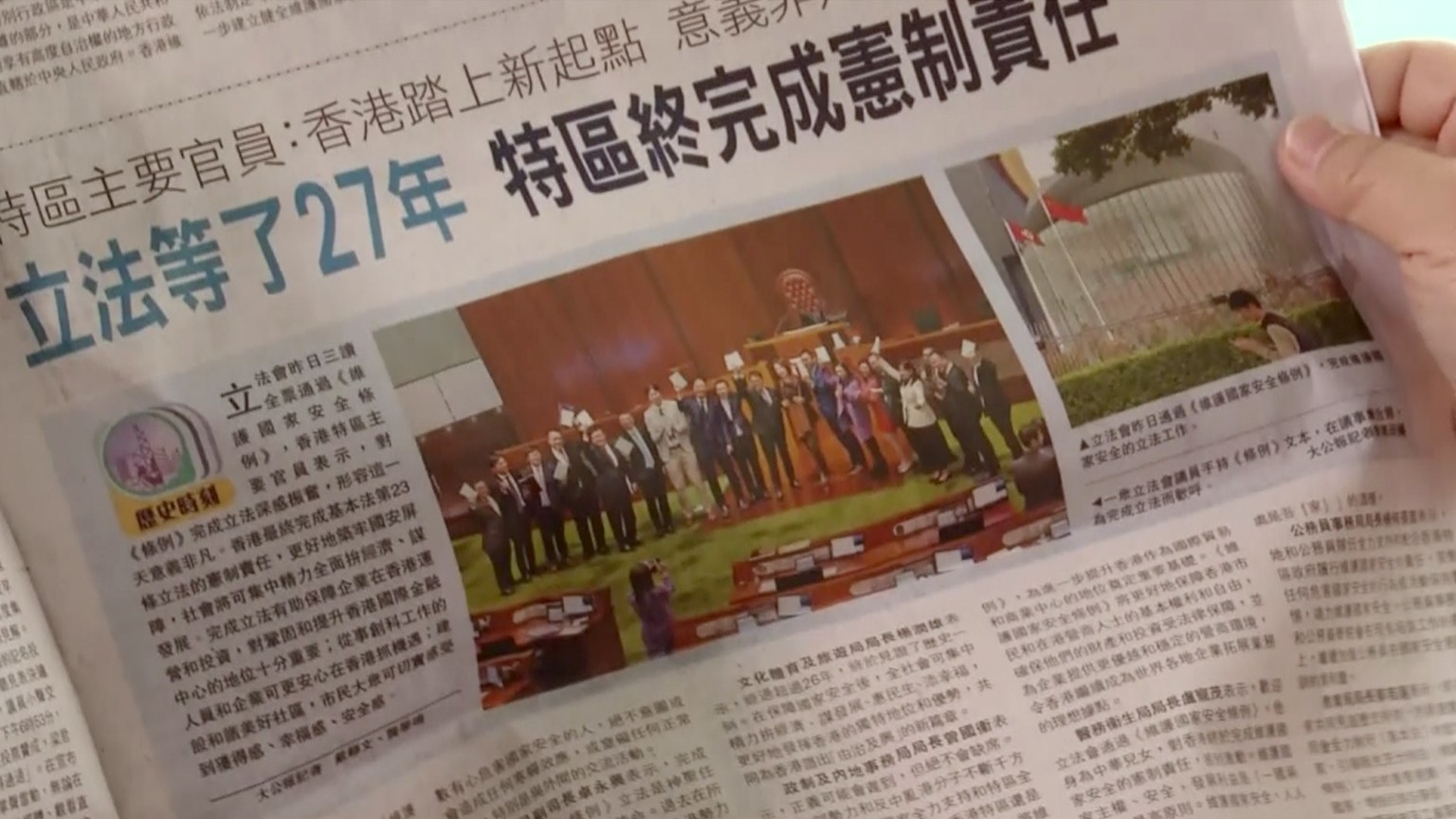Fast-tracked security law
Hong Kong's Legislative Council on Tuesday unanimously passed the bill, which expands on the Hong Kong National Security Law that was pushed by Beijing and took effect in 2020.
The new legislation will prohibit acts that endanger national security, including theft of state secrets, espionage and external interference. Violations could bring sentences of up to life imprisonment.
Members of the Council, most of them pro-Beijing, fully backed the rapid enactment, — and even worked through the weekend toward that goal. Approval came just 11 days after the Hong Kong government submitted it on March 8.
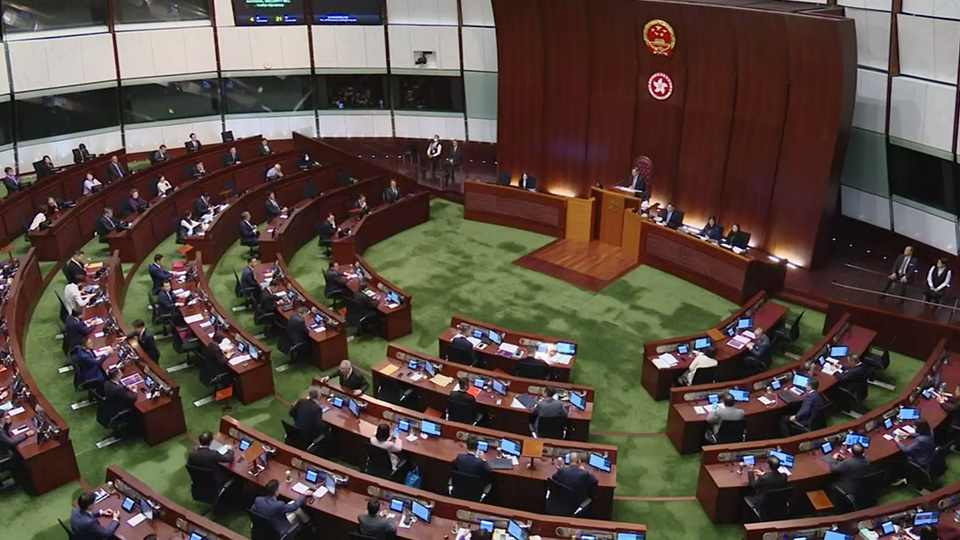
After the vote, Hong Kong Chief Executive John Lee spoke to lawmakers, calling it "a historic moment." He added that the legislation will come into effect on Saturday.
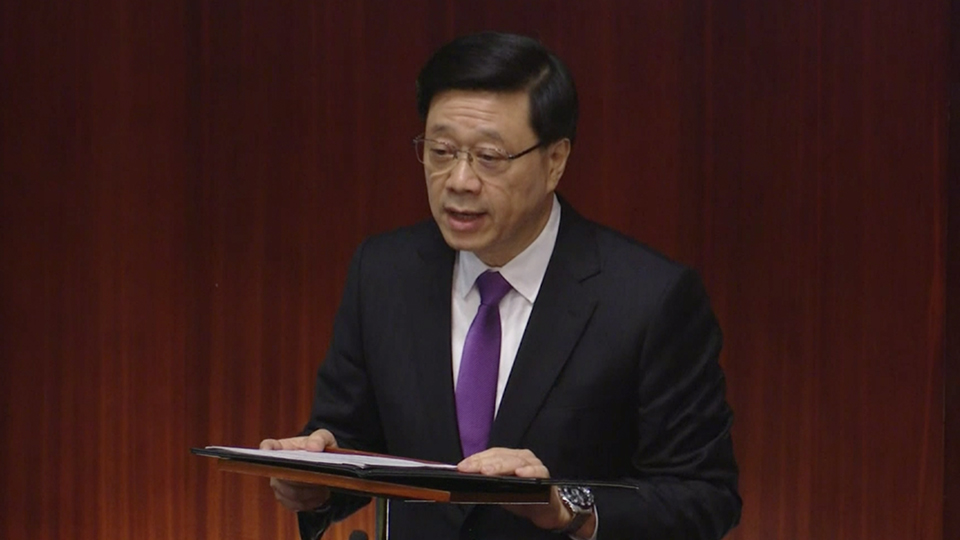
Observers say China's leadership under President Xi Jinping is behind the expedited passage of the bill. Lee cut short his visit to Beijing for China's National People's Congress and returned to Hong Kong on March 5, when the gathering opened. He then immediately began working on the bill.
China's state media reported that Ding Xuexiang, a senior official of the Communist Party and the first-ranked vice premier, instructed a delegation from Hong Kong on March 7 to speed up the process. He was cited as saying that Hong Kong has a Constitutional responsibility to enact the legislation.
Tighter control
Observers say the new law will allow the government to exercise tighter control over people in Hong Kong.
When the government tried to pass similar legislation in 2003, it met strong opposition from citizens — including a demonstration involving some 500,000 people — and was forced to withdraw it. But such protests have been strongly suppressed since the Hong Kong National Security Law took effect in 2020.
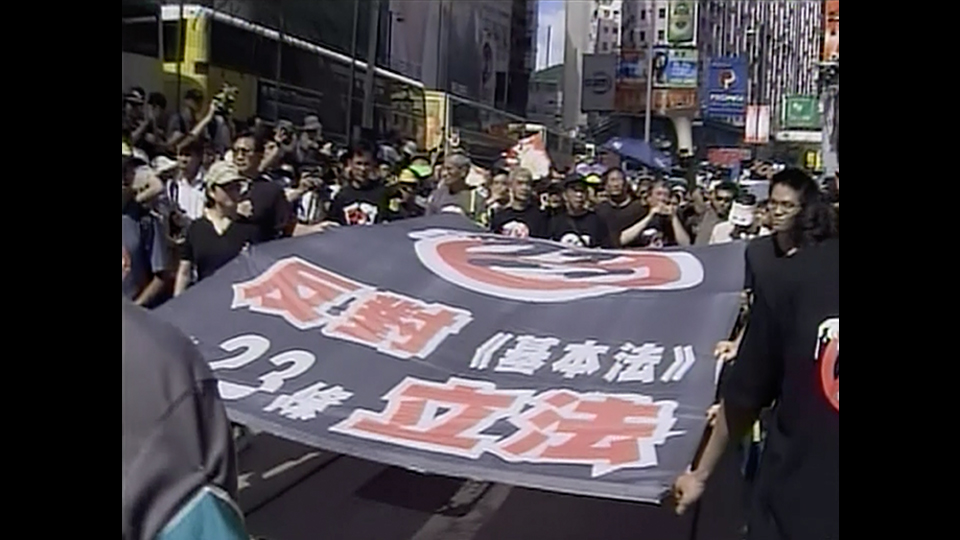
The government had been eager to pass the law in order to enforce provisions of Hong Kong's Basic Law, enacted in 1997 at the time of the territory's handover to China.
Growing concern
Even under such circumstances, three members of a Hong Kong pro-democracy group in February demonstrated against the new legislation.
The activists said the definition of state secrets is too broad, and that the government should strike a balance between state security and human rights.
Mak Yin Ting, a freelance reporter who headed a Hong Kong journalists association, is worried the new legislation may undermine freedom of the press.
Mak's biggest concern is what is called the crime of incitement.
A provision in the ordinance stipulates that those who incite hatred and dissatisfaction with the Chinese government and the Hong Kong government can face imprisonment. It says those who collude with foreign forces and publish "inflammatory" publications will face 10 years in prison.
"The definition of incitement is too broad. It'll be easy for authorities to take advantage of this to target voices they don't like," Mak says.
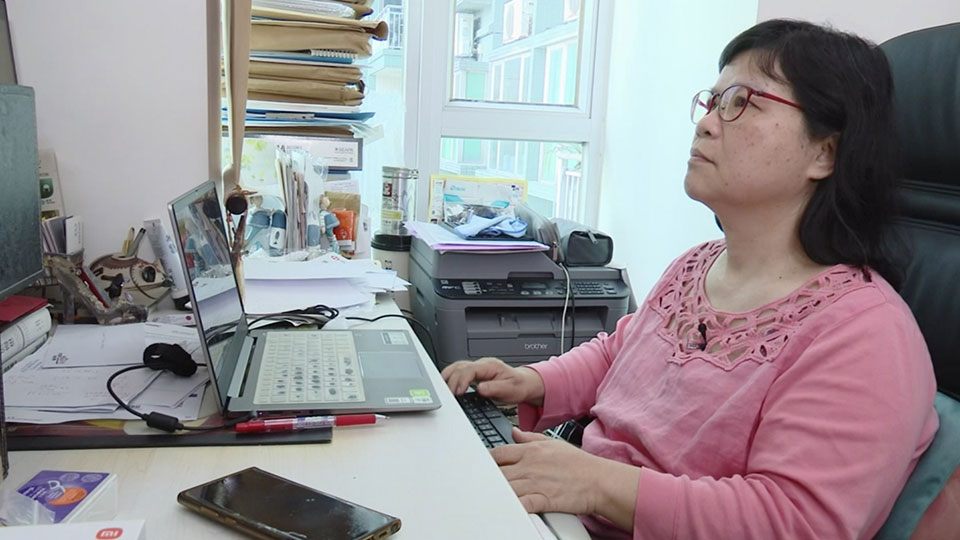
International organizations and governments around the world are also concerned.
The Office of the UN High Commissioner for Human Rights said on Tuesday that some provisions of the legislation are vague and could arbitrarily target people who voice dissenting views, as well as journalists and human rights defenders.
"For such important legislation, with a significant impact on human rights, to be passed without a thorough process of deliberation and meaningful consultation is a regressive step for the protection of human rights in Hong Kong," the office said in a statement.
Britain's Foreign Secretary David Cameron said in a statement that the legislation will "entrench the culture of self-censorship" among people in Hong Kong and "enable the continuing erosion of freedoms of speech, of assembly, and of the media."
Cameron also urged Hong Kong authorities to respect basic human rights and freedoms.
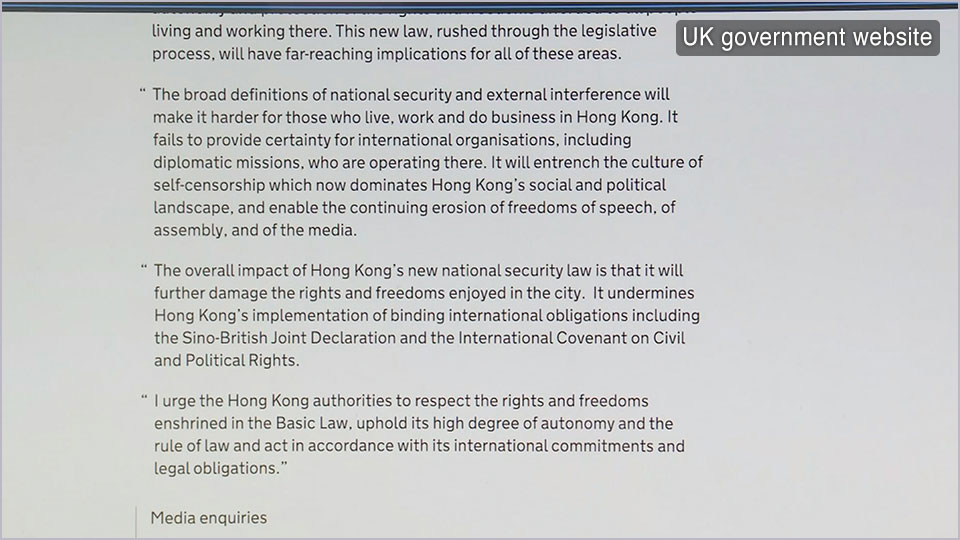
The European Union said the legislation "could impact European Union citizens, organizations and companies in Hong Kong."
It also said the legislation "raises questions about Hong Kong's long-term attractiveness as an international business hub."
Last June, Mak was taken away by police when she was covering authorities wary of moves to mourn the victims of the 1989 Tiananmen Square incident.
"The outlook is very severe. There are so many restrictions already," Mak says. "As a journalist, I have no choice but to continue what I've done."
